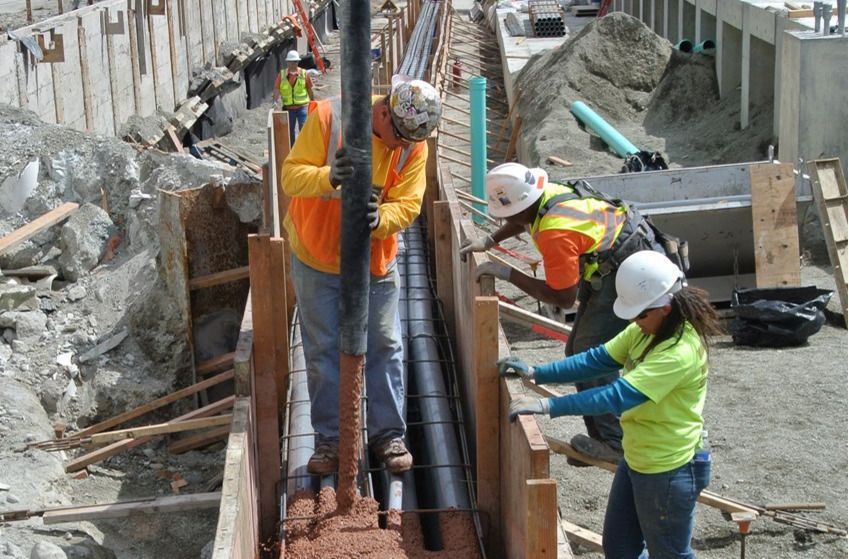Targeted hire programs — where cities employ workers from economically disadvantaged neighborhoods — are on the rise in the U.S., especially for infrastructure projects. Seattle City Council and Mayor Ed Murray passed such a program in 2015, calling it the Priority Hire Ordinance and, with the release of a new annual report, the mayor is ready to declare it a success — and expand it.
The policy covers city projects of $5 million or more and involves a community workforce agreement with several local building trades unions. Its goal is “to ensure better access to training programs and well-paying construction jobs for local workers, as well as to increase the diversity of the workforce on City projects,” the mayor wrote in the new report’s introduction. The policy targeted lower-income ZIP codes that tended to be majority people of color, including Central District, Rainier Valley and others.
The new report claims “people from the target ZIP codes have worked 237,000 hours on seven projects covered by the agreement — 21 percent of the total hours,” according to the Seattle Times, which adds that’s “nearly double their share of hours on a sample of similar past projects, and the work has brought them more than $8.5 million in wages.”
Women, African-Americans and Seattle residents in general have all increased their share of hours on large city projects, the Times reports.
Those findings are in keeping with data previously released on the Seattle Seawall Project, one of the Priority Hire Ordinance projects. It had the most diverse workforce of any city project recorded, with people living in economically distressed ZIP codes in Seattle or King County making up nearly 20 percent of those employed, and people of color working 25.2 percent of all hours and women working 12.6 percent of hours.
“Those numbers are staggering compared to the country as a whole, where fewer than 3 percent of construction industry jobs are held by women, and compared to the city’s past performance,” Jen Kinney reported for Next City about that project. “An analysis of previous public projects revealed that only about 5 percent of project hours were performed by people living in identified distressed ZIP codes, and in fact that only 6 percent of hours were performed by people living in Seattle at all. The rest of the workers were coming either from King County, or as far as three counties away.”
Now, Murray wants to broaden the policy to cover several private projects that the city has a major stake in, including KeyArena redevelopment, the Seattle Aquarium and the Seattle Asian Art Museum, according to the Times.
In an executive order issued Wednesday, the mayor mandates that city departments notify the director for the Department of Finance and Administration Services if they’re “contemplating an agreement relating to private project that includes construction, under which the City would pay at least $5 million dollars or more in exchange for rights or public benefits.”
Seattle’s success aside, targeted hire programs are not universally beloved. As Courtney Hutchison, of research institute PolicyLink, explained in a Next City op-ed last year, opposition to such programs tends to come from local contractors who “fear that added regulation will increase their costs or force them to hire unqualified workers, and pro-business politicians who fear it will be detrimental to business and taxpayer investments.” As red-blue political lines, particularly outside of the West Coast, are increasingly drawn between state and city governments (and mayors and the federal government) such programs could see more pushback.

Rachel Dovey is an award-winning freelance writer and former USC Annenberg fellow living at the northern tip of California’s Bay Area. She writes about infrastructure, water and climate change and has been published by Bust, Wired, Paste, SF Weekly, the East Bay Express and the North Bay Bohemian
Follow Rachel .(JavaScript must be enabled to view this email address)
















